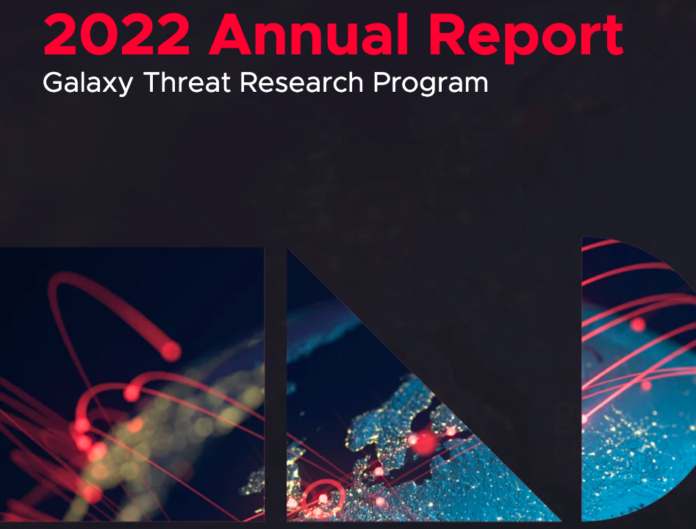The Asia-Pacific region is the second-worst hit region after North America, having suffered 23.5% of the total cyber issues reported globally in 2021, according to a new report from Micro Focus unit CyberRes.
Key findings from the previous year show that the public sector (27.4%) was impacted the most as escalating geopolitical tensions have placed the government organisations in the crosshairs.
One-third of the total cyberattacks perpetuated in 2021 were meant for cyber espionage, followed by financial gain.
In at least 24% of the cyberattacks in 2021, threat actors chose to exfiltrate sensitive data from their victims’ networks.
The study suggest that based on trends seen so far in 2022, the public sector will remain to be the most affected sector in the future.
Also, espionage is likely to be the biggest motivation for threat groups, and data exfiltration will be the most frequently used method of cyberattacks.
However, the cyber landscape, industry impact, and outlook for 2022 vary across markets.
For instance, Singapore was impacted by some of the biggest global incidents in 2021, including the SITA supply chain breach that impacted several airlines worldwide.
Another major incident affected one of the largest local mobile carriers, which resulted in the exfiltration of 129,000 customer data, among other sensitive information.
For this year, the report foresees some of the most vulnerable industries in Singapore as finance (with a high risk of attacks occurring in the next three months, and services (caution advised).
That said, Singapore is leading the charge in strengthening the ASEAN (Association of Southeast Asian Nations) cybersecurity landscape. The ASEAN-Singapore Cybersecurity Centre of Excellence plans to improve the cybersecurity strategy development, legislation, and research capabilities of the member states.
Overall, ASEAN countries are leading the global pack in cybersecurity by adopting the ASEAN Regional Action Plan (2021-2025), which seeks to sharpen areas such as research collaboration, knowledge sharing, and training.
Stephen McNulty, Micro Focus president in Asia Pacific and Japan, said the sheer volume of cyberattacks last year has created a lasting effect on all organisations and individuals across the globe.
“This trend is unfortunately continuing into 2022 – adversaries are quickly exploiting vulnerabilities in the digital value chain,” said McNulty. “The good news is that Asia Pacific has a massive opportunity to reverse or contain the numbers moving forward, with a clear understanding of the landscape and tactics now and in the future. This knowledge is a powerful defence.”
















